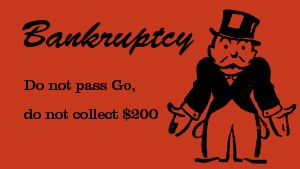By Jordan Roberts
Over the past few years, our office has dealt with a number of “bad used car” cases where a dealer sells a vehicle that breaks down shortly after the sale, or that won’t pass DEQ, or where a dealership has made false or misleading claims to the client in order to facilitate the sale. On occasion, we have run into the following situation: a potential client comes to us and, after an initial evaluation of the facts, we learn that the client has already signed a waiver and / or release of any potential claims. The waiver may take the following form: “in exchange for [small payment amount or token services provided by seller], consumer releases seller from any and all actions, causes of actions, claims, known or unknown, etc., including any alleged violations of the unlawful trade practices act, the truth-in-lending act, unlawful debt collections, the Magnuson-Moss warranty act…” The list can go on and on.
The question then becomes: did the potential client truly sign away all potential claims and would we be risking a motion for summary judgment by filing a new case? The true answer, of course, depends on the particular facts involved. However, consumer attorneys should look hard at the circumstances surrounding the purported waiver. In the context of consumer rights and protections granted by statute, the waiver may very well be unenforceable.
Waiver, in Oregon, is “the intentional relinquishment of a known right.” Waterway Terminals Company v. P.S. Lord Mechanical Contractors, 242 Or 1, 26 (1965). “It is a truism that a contract validly made between competent parties is not to be set aside lightly. When two or more persons competent for that purpose, upon a sufficient consideration, voluntarily agree to do or not to do a particular thing which may be lawfully done or omitted, they should be held to the consequences of their bargain. The right to contract privately is part of the liberty of citizenship, and an important office of the courts is to enforce contractual rights and obligations. As this court has stated, however, contract rights are [not] absolute; …equally fundamental with the private right is that of the public to regulate it in the common interest.” Bagley v. Mt. Bachelor, Inc., 356 Or 543, 551 (2014) (internal citations omitted).
“Statutory rights may be waived, but only to the extent that they serve no broader public policy but are directed solely to the protection of the individual who purports to waive them.” In re Leisure, 334 Or 244, 253 (2003) (emphasis added). “[W]aiver is not appropriate when it is inconsistent with the provision creating the right sought to be secured and a right conferred on a private party, but affecting the public interest, may not be waived or released if such waiver or release contravenes the statutory policy.” Clark v. Capital Credit & Collection Services, 460 F3d 1162, 1170 (9th Cir 2006) quoting New York v. Hill, 528 US 110, 116 (2000). Put more simply: “[w]here legislation is intended to secure general objectives of public policy as well as to protect the interests of individuals, it may not be circumvented by private agreement.” McKinney v. Employment Division, 21 Or App 730, 737 (1975). See also: Welker v. Teacher Standards and Practices Commission, 152 Or App 190, 197 (1998) citing Turney v. J.H. Tillman Co., 112 Or 122, 132, (1924).
When confronted with a potential waiver, it is important to look to the impact on the individual consumer, but it is equally important to look to the underlying policy concerns behind the statute. Consumers do not have to show a specific injury to the public in a specific instance in order to invoke the public policy concerns and void contract term. “In determining whether an agreement is illegal because it is contrary to public policy, ‘[t]he test is the evil tendency of the contract and not its actual injury to the public in a particular instance.’” Bagley v. Mt. Bachelor, Inc., 356 Or 543, 552 (2014) quoting Pyle v. Kernan, 148 Or 666, 673-674 (1934). However, it is also important to examine the specific circumstances of each individual waiver because waivers often are enforced “only if the waiver was ‘knowing’ or ‘intelligent,’ which means the individual has ‘sufficient awareness of the relevant circumstances and likely consequences’ of his decision. Clark v. Capital Credit & Collection Services, 460 F3d 1162, 1171 (9th Cir 2006) quoting Brady v. United States, 397 US 742, 748 (1970). As such, a waiver or release of claims that is negotiated by two attorneys on behalf of their respective clients is more likely to be enforceable than a take-it-or-leave-it waiver signed by a consumer as part of a transaction with little or no explanation.
In the most recent case addressing whether an anticipatory release is valid, the court summarized the law as follows: “We glean from those decisions that relevant procedural factors in the determination of whether enforcement of an anticipatory release would violate public policy or be unconscionable include whether the release was conspicuous and unambiguous; whether there was a substantial disparity in the parties’ bargaining power; whether the contract was offered on a take-it-or-leave-it basis; and whether the contract involved a consumer transaction. Relevant substantive considerations include whether enforcement of the release would cause a harsh or inequitable result to befall the releasing party; whether the releasee serves an important public interest or function; and whether the release purported to disclaim liability for more serious misconduct than ordinary negligence. Nothing in our previous decisions suggests that any single factor takes precedence over the others or that the listed factors are exclusive. Rather, they indicate that a determination whether enforcement of an anticipatory release would violate public policy or be unconscionable must be based on the totality of the circumstances of a particular transaction. The analysis in that regard is guided, but not limited, by the factors that this court previously has identified; it is also informed by any other considerations that may be relevant, including societal expectations.” Bagley v. Mt. Bachelor, Inc., 356 Or 543, 560 (2014).
When a potential client has signed a waiver or release of claims, the inquiry into the facts should dive deeper to see whether such waiver is valid and enforceable. In the context of consumer transactions, as opposed to an arms-length business transaction, or a settlement negotiation involving experienced lawyers on both sides, the answer may very well be that it is not.
Jordan Roberts is a partner at the Roberts Law Group PC.




